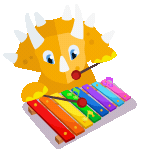Time‑Travel to Berlin 1930s: Historical German Phrases for Young Explorers
Imagine stepping off a shiny steam train at Berlin Friedrichstraße in 1931. Trams clang, radios crackle, and shopkeepers greet you with “Guten Tag, gnädige Frau!” (Good day, madam!). Re‑creating this bustling scene in German helps children absorb vocabulary and cultural snippets like travelers, not tourists.
A Snapshot of 1930s Street Life
Berlin’s modern pulse had begun: neon cinema signs, bustling Straßenbahn (tram) lines, and popular expressions such as “Was kostet das?” (How much does that cost?). Introduce core words:
- die Kinokarte – cinema ticket
- der Koffer – suitcase
- das Grammophon – gramophone
- die Reichsmark – pre‑euro currency
Tie each noun to an image or vintage postcard so young explorers visualize history, not just hear it.
Role‑Play Missions
Tram Ticket Adventure
Lay masking‑tape tracks across the floor. One child sells tickets, stamping paper slips while saying, “Einmal Stadtmitte, bitte.” (One to city center, please.). The conductor replies, “Zwei Reichsmark, danke.” Acting out fare exchanges cements money terms and polite formulas.
Radio News Flash
Craft a shoebox radio. Kids rotate roles as announcer and listener. The announcer reads a simplified headline: “Heute scheint die Sonne über Berlin.” (Today the sun shines over Berlin.). Listeners respond with “Jawohl!” (Yes indeed!) or ask for repeats—great listening practice.
Cabaret Costume Parade
Provide paper mustaches, feather boas, and vocabulary cards: der Hut (hat), das Kleid (dress), die Melodie (melody). Children walk a “stage,” naming each accessory in German, then perform a short dance to ’30s swing music.
Practice Corner
During daily routines, swap modern coins for “Reichsmark” tokens when giving pocket money, or greet siblings with “Grüß Gott!” (regional hello). Short, themed exchanges keep phrases alive.
To extend the journey, explore how interactive lessons work on Dinolingo. Animated stories can be set to historical themes, letting kids unlock badges while parents track vocabulary progress no time machine required.
Final Thoughts
Historical role‑play turns German study into living adventure. Combine tram rides, radio shows, and Dinolingo’s gamified lessons, and your young historians will collect phrases like souvenirs from a Berlin long past.
Sources
Start Learning a New Language Today!
Best Language App for Kids.
7-day free trial. Then only $19/month. Cancel anytime.
